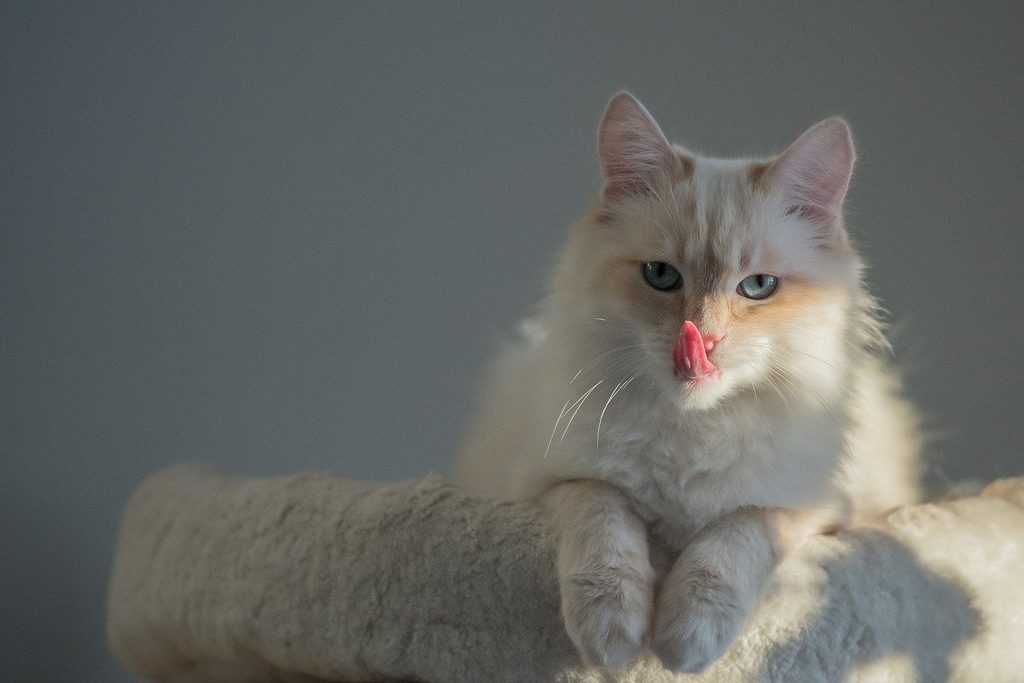
One thing every pet owner encounters is dogs or cats that licks themselves. It’s estimated that kitties, in particular, might spend up to 50% of their day cleaning themselves. Imagine if you took a shower for 12 hours per day. Still, part of the reason animals groom excessively is that they only focus on one area at a time and also they find the process soothing and relaxing. It’s more like going to the spa for them than simply going through your morning routine.
When you have more than one cat, they might take turns grooming each other. Of course, bathing could well be part of this, but there are other reasons your cats like to lick each other. Why do cats lick each other? We’ll walk through the various reasons.
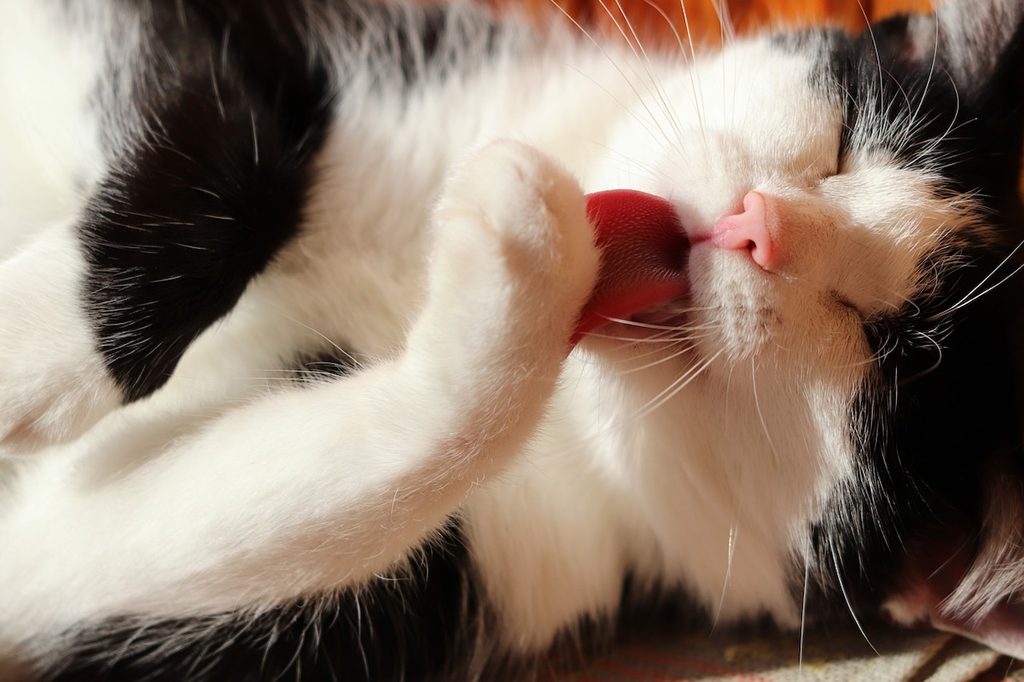
What does it mean when my cats lick each other?
This weird ritual can have a few different origins. Cats need to stay clean and keep their fur well kept to prevent infections, remove parasites, and mask their scent. If you watch enough nature documentaries, you’ll see lions lick each other and their own fur frequently, so it comes from their deepest instincts.
However, sometimes felines have other motivations. In addition to simple cleanliness, our pets like to wash one another to build relationships and show affection. This likely stems from early life when cat mamas give their babies baths. Pet owners with a big cat family may notice some of their mousers licking a cat more than the others. Frequently, that means those two are bonded and have a deeper relationship.
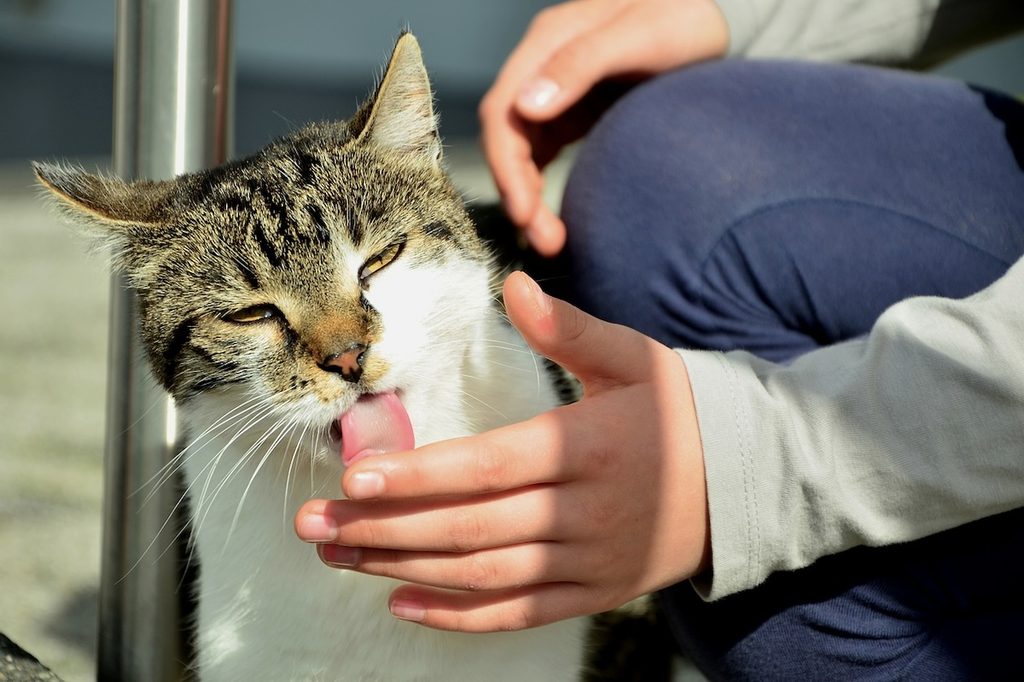
Why do cats bite and then lick you?
Many pets give their humans and each other love bites. You’ll know the difference because it’ll include a quick and relatively gentle nip that won’t break the skin or even really leave a mark. Oftentimes, your furry friend might give you a quick chomp and then start to lick you. It doesn’t indicate a contradiction, even though it could seem that way to you.
See this as part of your bonding ritual with your beastie and let them lick your hand or face should they desire. However, when it goes too far, you can always redirect them or gently correct their licking. But there’s a different side to this as well.
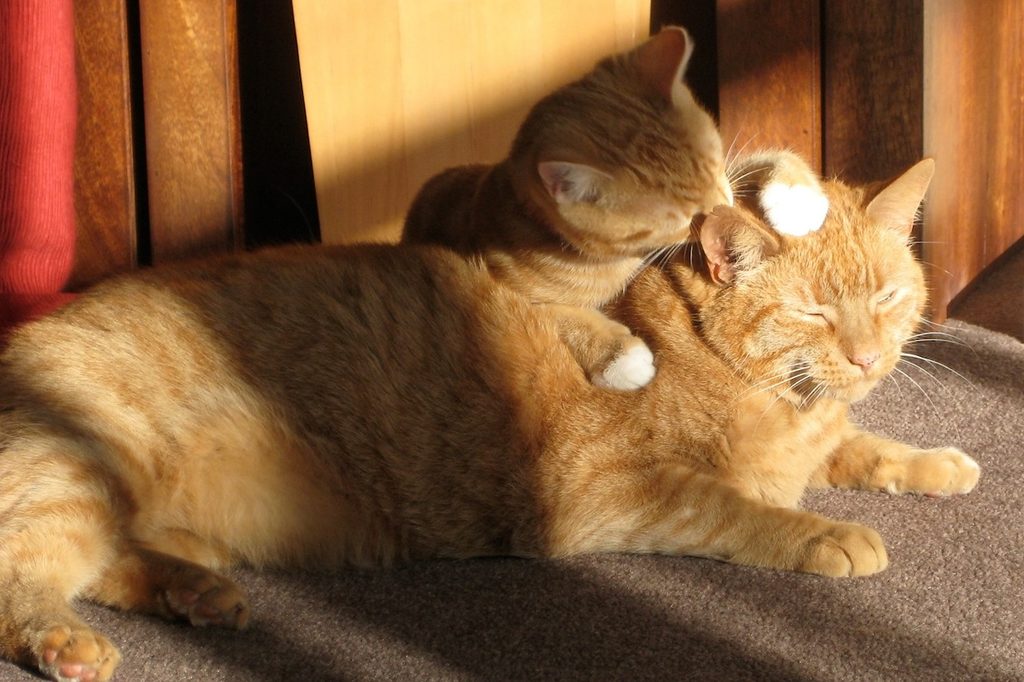
Which cat is dominant grooming?
Sometimes, you’ll spot your cat aggressively lick another cat. It seems strange that a grooming act could signal a deeper behavior, but it does. Well-placed mouthiness can help establish a hierarchy among your animals. Research says dominant cats may more frequently lick the critter lower in the pecking order. To us, that seems backward, but it can make sense if you’re a kitty. The cat aggressor will usually target a weak or vulnerable area. Think about when a dog shows you or another pet their belly — that establishes their willingness to submit. The grooming ritual follows the same principles.
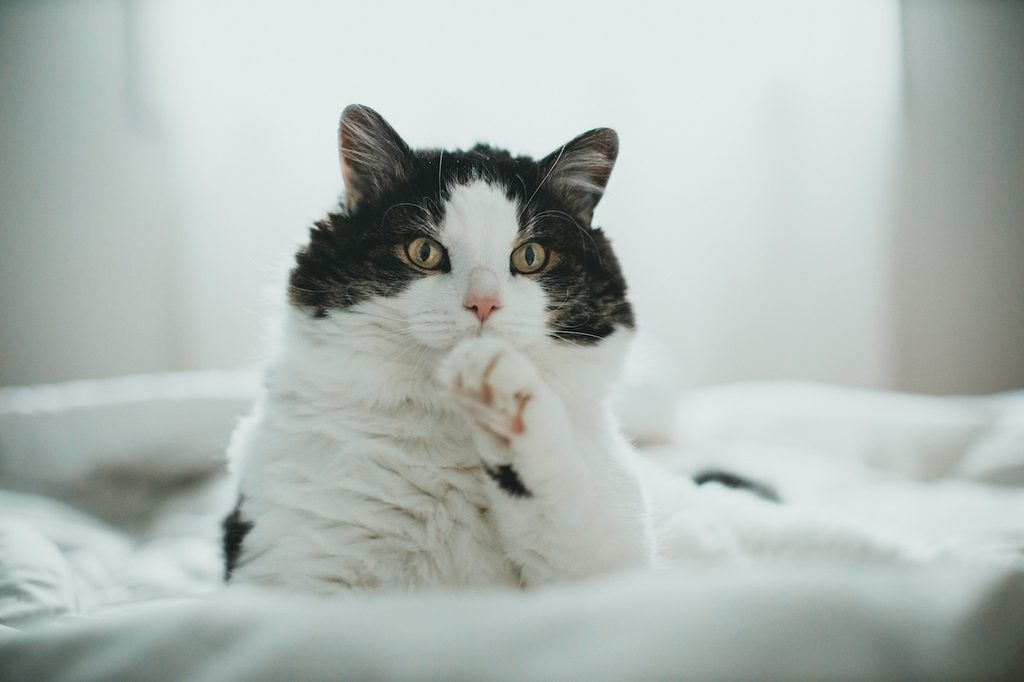
What do you do if your cat licks obsessively?
The first thing you should do is check for obvious issues like fleas, allergies, or matted fur. Ensure that you stay up to date on all preventatives, such as topical treatments or allergy pills. You can also brush your pet and even bathe them as needed. Of course, occasionally, skin conditions go beyond the usual and you’ll have to have them looked at by a professional. They’ll diagnose any further problems — it could be acne or ringworm. Lastly, excessive licking can actually stem from stress or other psychological difficulties. Changes to your pet’s environment might lead to sudden behavior difficulties, including too much licking or grooming.
So here’s the real question: When should you be worried about your cat licking too much? Any time there’s a change in behavior, you want to look into it both at home and with a vet’s guidance if necessary. This applies to grooming as well. Once you know your cat, you’ll have a good idea of how they behave under normal circumstances and know when it changes. If that happens, you might need to reach out to your kitty doc and get them examined.
Other signs that something’s not right include bald patches, excessive hairballs, salivary staining, and unusual aggressive biting. For example, a cat ripping out their own fur usually says something doesn’t feel right for them. Socially, new additions, a move, or another big change in routine could lead to different grooming habits. Regardless of the underlying issue, a closer check and a vet visit will clear this up easily.



